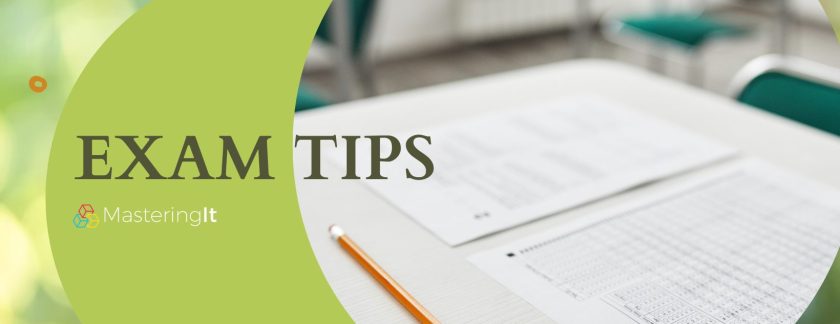
Final exams are just around the corner, with some students already starting. By this time in the year students are typically running out of steam, and yet these are some of the most important exams of the entire school year. For Matrics, these are your last school exams, and often your future plans rely on these results. There’s a lot of pressure on these exams — so we thought we would share our top tips for exams to help you ace your upcoming tests!

A week or so ago we wrote a blog on our top tips for studying. If you haven’t read that, go and check it out! As we know, exams are not only about studying, they’re also about teaching you to maintain balance in your life when you are under immense stress — something you will absolutely need to know how to do in your further studies and careers! So, we need to take a more holistic approach to exam prep.
Let’s take a look at some holistic TIPS for preparing for your exams:
1. Have a study schedule
- Start studying at least a month before the exam. Draw up or use an empty monthly calendar and write in your exam dates, then work backwards and fill in which subjects need to be studied when. Make sure you prioritise your more difficult subjects.
“Tomorrow you will wish you had started today.”
2. Use a variety of study techniques
- Simple note taking and summarising is a great first step of a study plan, but don’t stop there. It has been proven that repeatedly writing things down is the best way to commit them to memory. Make even more summarised versions of your notes using bullet points, mind maps and cue cards. Use whatever technique is best for you, whether you are a visual, auditory, reading/writing or kinesthetic learner.
“You get what you work for, not what you wish for.”
3. Eat well and look after yourself
- A hugely underrated factor in your study plan is your nutrition. While rewarding yourself with treats seems like a great motivator (and can be) remember to eat whole foods that feed your BRAIN. Without proper nutrients your brain literally cannot function optimally, which means you cannot study optimally, which means you are wasting your own time and energy. Nuts, fruits, wholegrains and dark chocolate are great alternatives to sugary or processed foods.
- Similarly, on the day of an exam, make sure to eat breakfast, drink lots of water, and avoid very sugary foods. Low blood sugar or a sugar crash are not very helpful in the middle of your exam as they severely impact cognitive processes, aka: brain function.
- Make sure you get enough sleep and take regular breaks to do something relaxing or to do a hobby/sport.
- Exercise is also an important component in keeping our energy levels up and optimising brain function — so if you are feeling stuck, opt for a quick walk around the block or even just your garden.
“Do something today that your future self will thank you for.”

4. Do practice papers
- You’ve heard it from your teachers, you’ll hear it again — practice papers are one of the BEST ways to prepare yourself for an exam. Not only do you become familiar with the sorts of questions they ask (because, let’s be honest, most exam papers are recycled from previous years) but also the types of wording they use and possible keywords they are looking for in an answer.
- Practice really does make perfect — and this applies to any subject you are studying.
“Do not be afraid to fail, be afraid not to try.”
5. Try to minimise stress
Easier said than done, so here are some tips:
- Plan study sessions with friends to hold each other accountable (also to have sociable and even active breaks).
- Follow the tips above so that you feel more prepared and well rested.
- Try deep breathing or meditation. Even just 5 minutes of deep breathing has a profound impact on your body’s reaction to stress. Don’t knock it before you try it!
- Find what works best for YOU. If you can’t concentrate without background music, or can only work when no-one disturbs you, or you need accountability partners, try and find ways to accommodate that.
- Find out when you work your best. Some people are early birds, some people are night owls. When you can, use this to your advantage and plan your study sessions during these times.
Students, we hope you find these tips useful. Work hard for these final few months, give it your all and make yourself proud! We will leave you with this final quote:
“You don’t want to look back and know you could’ve done better.”

